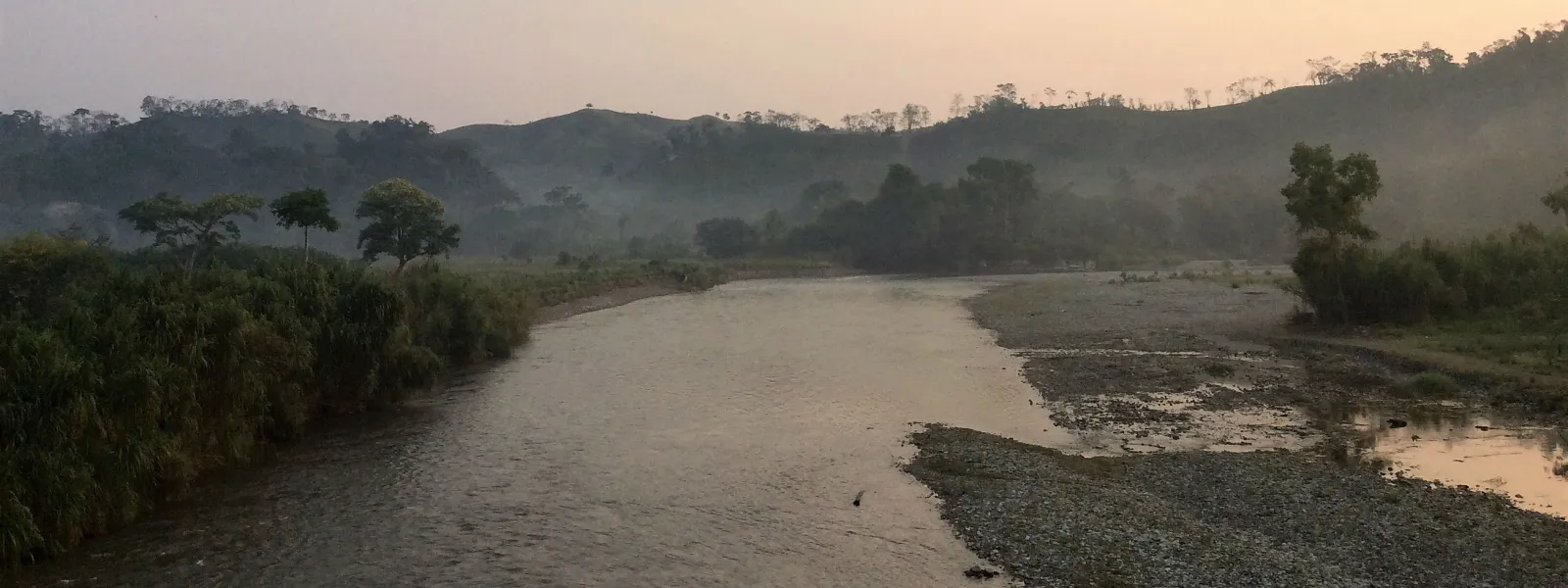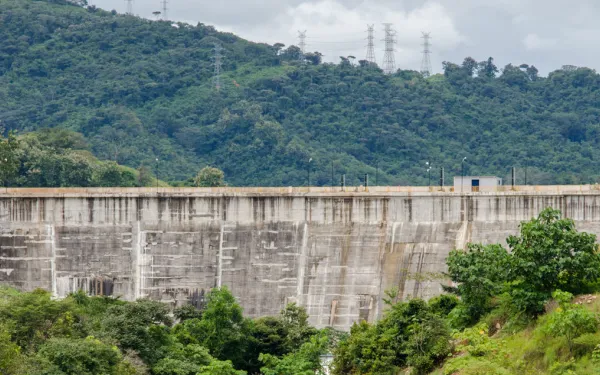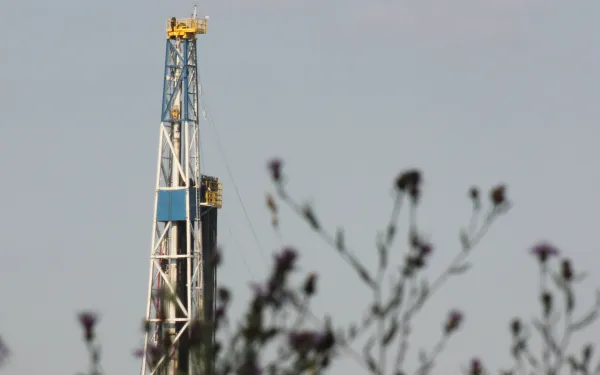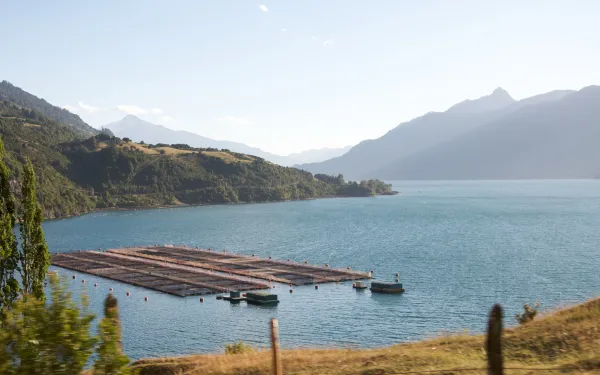
Project
Liliana Ávila /AIDAMayan women’s struggle before the Inter-American Development Bank in Guatemala
Mayan communities succeeded in getting the IDB Invest to develop a responsible exit plan after withdrawing its financing for two hydroelectric projects that negatively impacted ecosystems and the livelihoods of indigenous peoples, especially women, in the micro-region of Yichk'isis (Ixquisis).
In the struggle to defend their water, territory and way of life, indigenous Mayan communities in the Yichk'isis (Ixquisis) micro-region of northern Guatemala convinced the Inter-American Development Bank Group to withdraw its financing of two hydroelectric dams whose implementation violated their rights. The decision was also significant in that the IDB, for the first time, designed a responsible exit plan.
That historic advance was the result of the complaint that the communities filed in August 2018—with the support of AIDA, the Plurinational Ancestral Government of the Akateko, Chuj, and Q'anjob'al Native Nations, and the International Platform against Impunity. The complaint was filed with the Independent Consultation and Investigation Mechanism (MICI), the IDB Group's accountability office.
In resolving the case in September 2021, the MICI concluded that IDB Invest failed to comply with its own operational policies and safeguards, in the framework of the financing granted to the company Energía y Renovación S.A. for the implementation of the San Mateo and San Andrés hydroelectric projects.
Learn more about this achievement
In the mountains of Northwestern Guatemala, near the border with Mexico, the land is rich and fertile. Several important rivers and many other water sources feed the soil.
The residents of these mountains, many indigenous women of Mayan descent, have long depended on the waters to nourish them, to provide them with fish, as well as for agriculture, sanitation, and cooking.
But the construction of the San Mateo and San Andres dams has caused water scarcity and the contamination of rivers and other natural resources long cherished by the communities.
The near lack of water has also drastically reduced harvests, lessening the income gained from selling corn, wheat, beans, coffee, sugar cane and other products in the market. As a result, the conditions of poverty in the area have deepened.
And the risk situation is profound, particularly for women, who have played a very important role in the defense of water and territory threatened by hydroelectric projects, and are therefore victims of intimidation and stigmatization.
As guardians of their land and water, they have come to its defense and they’ll continue to prevent environmental deterioration from further harming their families.
Read our fact sheet on the case

Related projects

Say no to large dams: 3 reasons to opt for alternative energy sources
By Florencia Ortúzar and Monti Aguirre* Hydroelectric energy has been one of the largest drivers of development in many Latin American nations, and still represents a large portion of the region’s energy matrix. But is it really the best option? In response to a blog by the Inter-American Development Bank reflecting on the future of the hydroelectric sector in Latin America, we’d like to reflect on what it means to continue betting on large dams in Latin America. What follows are three reasons why we must say no to more large dams: 1. Better alternatives to hydroelectricity exist, and should be considered in project planning Before selecting an alternative energy source, governments and companies should develop a strategic plan that analyzes energy needs and the best way of achieving them. In this analysis, all options must be considered. It’s worrysome that this doesn’t already happen. For example, in the case of the Hidroituango dam—thought to be the largest in Colombia and associated with serious socio-environmental damages—the government decided to not conduct a prior evaluation of alternatives. Although the law did not require it at the time, the evaluation was recommended and is an international standard that large financial institutions should apply when investing in projects of this type. Today, other energy sources—like wind and solar—are proven to be economically competitive, can be constructed more quickly, and do not aggravate climate change. Innovations in smart grids, power storage and batteries also solve intermittency problems and make hydroelectric plants unnecessary. Geothermal, tidal, and wave energy are alternatives, the potential of which we have not even glimpsed. The promotion of large dams only delays adoption of the truly clean energy solutions that Latin America and the planet desperately need. According to the Bank’s own studies, Latin America has the largest quantity and most varied sources of renewable energy in the world. The region's renewable resources could provide almost seven times the installed capacity worldwide, excluding hydroelectric power. Therefore, although the region still holds great potential for untapped hydroelectric power, it’s necessary to conduct a comprehensive evaluation of the situation, taking into account the costs and benefits as compared to other energy options. Only then can governments decide whether it’s worth continuing to invest in hydropower, or whether it’s better to opt for other types of energy—thus avoiding the social, environmental and financial impacts that come with large dams. 2. Large dams cause socio-environmental damage and are not profitable It has been demonstrated repeatedly that the socio-environmental impacts of hydroelectric plants are greater than initially considered. In addition to forced displacement and the criminalization of those who oppose them, large dams flood land, reduce river flows, and change the ecosystems of downstream wetlands, destroying habitats and contributing to species extinction. All this impacts the lives of nearby communities, limiting their ability to adapt to climate change. In economic terms, a study by the University of Oxford concluded that “even before accounting for the negative impacts on human society and environment, the actual construction costs of large dams are too high to yield a positive return.” In it, researchers show that the budgets and timeframes of large dam projects are consistently underestimated. Brazil’s Belo Monte Dam, for example, ran two times over its original budget, making it the most expensive public works project in the Amazon region. The budget of Chile’s Alto Maipo Dam has doubled four times over since the project was approved in 2009. Recognizing that the costs far outweigh the benefits, some countries have opted for dismantling large dams. And private companies have scrapped hydroelectric projects altogether because they are neither economically viable nor profitable. The United States government has adopted a policy to refuse any loan, donation, strategy or policy supporting the construction of large dams. 3. Large dams contribute to climate change Climate change must be considered when discussing the relevance of hydroelectricity. Reservoirs generate significant quantities of greenhouse gases, particularly methane, which is 30 times more effective at trapping heat than carbon dioxide. Likewise, the construction of dams endangers valuable carbon sinks like rivers and forests. For that reason, a proper analysis of carbon dioxide and methane emissions should be conducted before choosing a dam project—a process that usually doesn't occur. Another aspect to consider is the vulnerability of dams to climate variations. Extreme rainfall increases sedimentation, which can cause structural problems and reduce the dam's lifespan. Droughts, now increasingly frequent, can render dams inefficient. As more dams lose efficiency, Latin America—now highly dependent on hydroelectricity—will be more vulnerable to energy shortages. Even more serious is the threat posed by large dams in extreme weather events. In a dam gave way during bad weather, erasing entire villages. In Laos earlier this year, mass evacuations were ordered after heavy rains threatened a dam collapse. In Kerala, India, torrential rains, coupled with the mismanagement of several dams, have caused unprecedented flooding. In certain countries, the risk of dams overflowing or collapsing has already been recognized as a serious problem. Over time, more hydroelectric plants will begin to deteriorate and will require large investments to safeguard the communities living downstream. As civil society representatives working for a more just and sustainable Latin America, we urge financial institutions like the Inter-American Development Bank to support the change we as a region need. We call on them to stop investing in large dams, which have been demonstrated time and again to be dangerous to the environment and local communities, costly for countries, and unsuited for our rapidly changing climate. It’s time for a better energy plan. And it’s time to invest in non-conventional renewable energy based on thorough, independent and high-quality social and environmental impact assessments, the planning and implementation of which respect human rights. * Monti Aguirre is the Latin America Program Coordinator for International Rivers.
Read more
Inter-American Commission to analyze fracking’s impacts on human rights
The Inter-American Commission on Human Rights will hold an informative hearing on October 3, 2018 to better understand the situation of fracking in the Americas and the human rights violations it’s causing. The hearing is being held in response to a request brought forth by 126 Latin American organizations, united in the Latin American Alliance on Fracking. The hearing will take place in Boulder, Colorado during the Commission’s 169th period of sessions. In it, human rights defenders and representatives of affected communities will present detailed information on the documented human rights impacts, as well as the potential risks, of fracking in Latin America. The Alliance seeks to propose a series of recommendations to the Commission and governments of the region in order to guarantee human rights when faced with the exploitation of unconventional hydrocarbon reserves. According to the hearing request, there are approximately 5,000 fracking wells throughout Latin America. In Argentina, there are roughly 2,000 wells. In Chile, according to official data, 182 wells have been approved, the large majority in Tierra del Fuego. In Mexico, there are more than 3,350 fracking wells, although the signatory organizations indicated there are challenges in terms of access to this information. In Brazil and Colombia, contracts have been signed that allow for exploration and exploitation. In Bolivia, prospecting and sample studies of unconventional deposits have begun. Organizations from Argentina, Bolivia, Brazil, Colombia, Costa Rica, Chile, Ecuador, Mexico, Paraguay, Peru and Uruguay signed the request for a hearing before the Commission in July. “Fracking’s advance in Latin America is being carried out blindly because neither the chemicals used, nor their synergistic effects, nor the actual and potential risks, nor the effectiveness of mitigation measures are known with any certainty,” explained Claudia Velarde, attorney with the Interamerican Association for Environmental Defense (AIDA). “What is known is the damage fracking causes to the environment, the quantity and quality of water, and the impacts it has on health and human rights.” While fracking is promoted across Latin America, various nations, states and provinces of Europe, the Americas and Oceania have banned the technique due to the negative impacts it has had on the environment and public health. The request to the Commission emphasizes, “none of the nations where fracking has been implemented have a comprehensive knowledge of the irreversible damage it causes to the environment and the lives of individuals and communities. However, abundant scientific evidence exists on fracking’s negative impacts due to the extensive use of the technique in the United States.” Follow news from the hearing with the hashtag #AméricaSinFracking PRESS CONTACT Victor Quintanilla, AIDA (Mexico), [email protected], +521 5570522107
Read more
Calling on Chile to stop salmon industry’s impact on Patagonia
AIDA alerted six international treaties to the damages the salmon industry is causing to Chilean Patagonia, and requested that they visit the Magallanes region to investigate the impacts and urge the Chilean government to protect the region. Santiago, Chile. In an Urgent Alert to international authorities, the Interamerican Association of Environmental Defense (AIDA) requested that experts visit the Magallanes region of Chilean Patagonia—where the expansion of the salmon industry is causing serious environmental damage—and asked them to urge the government to adopt appropriate measures to address them. “These six treaties were signed and ratified by Chile to protect its natural wealth, including the endemic species of the Magallanes region,” said Florencia Ortuzar, AIDA attorney. “The government is violating these agreements by failing to prevent the salmon industry from damaging the country’s marine environments.” The document details the principal damages caused by the salmon farms in Magallanes, among them: contamination of the seabed from large amounts of fish feces, excess chemical waste, and the over-saturation of waters with fish, all of which create oxygen-free dead zones where marine life cannot survive. The alert was sent to authorities in charge of the Convention on Biological Diversity, the Convention on the Conservation of Migratory Species of Wild Animals, the International Whaling Commission, the Inter-American Convention for the Protection and Conservation of Sea Turtles, the United Nations Convention on the Law of the Sea, and the Antarctic Treaty. The situation was also reported to the Food and Agriculture Organization of the United Nations and the World Health Organization. The Magallanes region is home to many protected species, including the blue whale, the sperm whale, the Magellanic penguin, the elephant seal, the leatherback turtle, the Southern dolphin and the Chilean dolphin. A remote and pristine area, Magallanes is poorly studied and it is thus virtually impossible to understand the consequences of the industry’s current and potential impacts. “More than half the farms operating in Magallanes are causing a total or partial lack of oxygen in the waters,” explained Ortuzar. “This demonstrates that the salmon concessions are being granted without the scientific support needed to guarantee they won’t cause environmental damage.” Another problem raised in the alert is the excessive use of antibiotics in Chilean salmon farms—higher than that of any other salmon-producing nation. This excessive use provokes antimicrobial resistance in humans, a problem that has been recognized by the World Health Organization as a serious threat to global public health. In the alert, AIDA requested the international authorities: support the Chilean State in the investigation of the salmon industry’s real and potential impacts on Patagonia; remind Chile of its obligations under the treaties; investigate the damage described; and, when needed, request the application of sanctions and the suspension or cancellation of concessions in Magallanes. Consult the Urgent Alert. Find more information on the case here. press contact Victor Quintanilla (Mexico), AIDA, [email protected], +521 5570522107
Read more